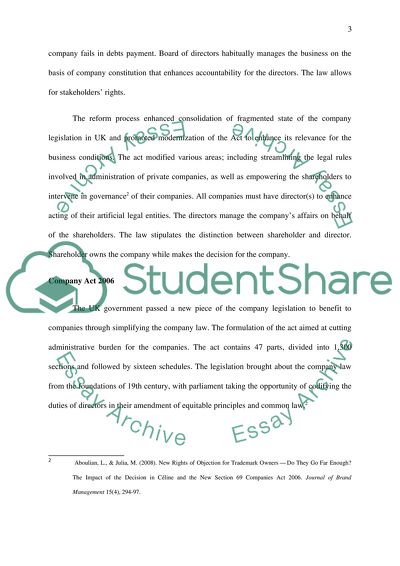Cite this document
(“Analysis of a Company Act 2006: Sections 170-177 Essay”, n.d.)
Retrieved de https://studentshare.org/law/1481015-analysis-of-a-company-act-2006-sections-170-177
Retrieved de https://studentshare.org/law/1481015-analysis-of-a-company-act-2006-sections-170-177
(Analysis of a Company Act 2006: Sections 170-177 Essay)
https://studentshare.org/law/1481015-analysis-of-a-company-act-2006-sections-170-177.
https://studentshare.org/law/1481015-analysis-of-a-company-act-2006-sections-170-177.
“Analysis of a Company Act 2006: Sections 170-177 Essay”, n.d. https://studentshare.org/law/1481015-analysis-of-a-company-act-2006-sections-170-177.


